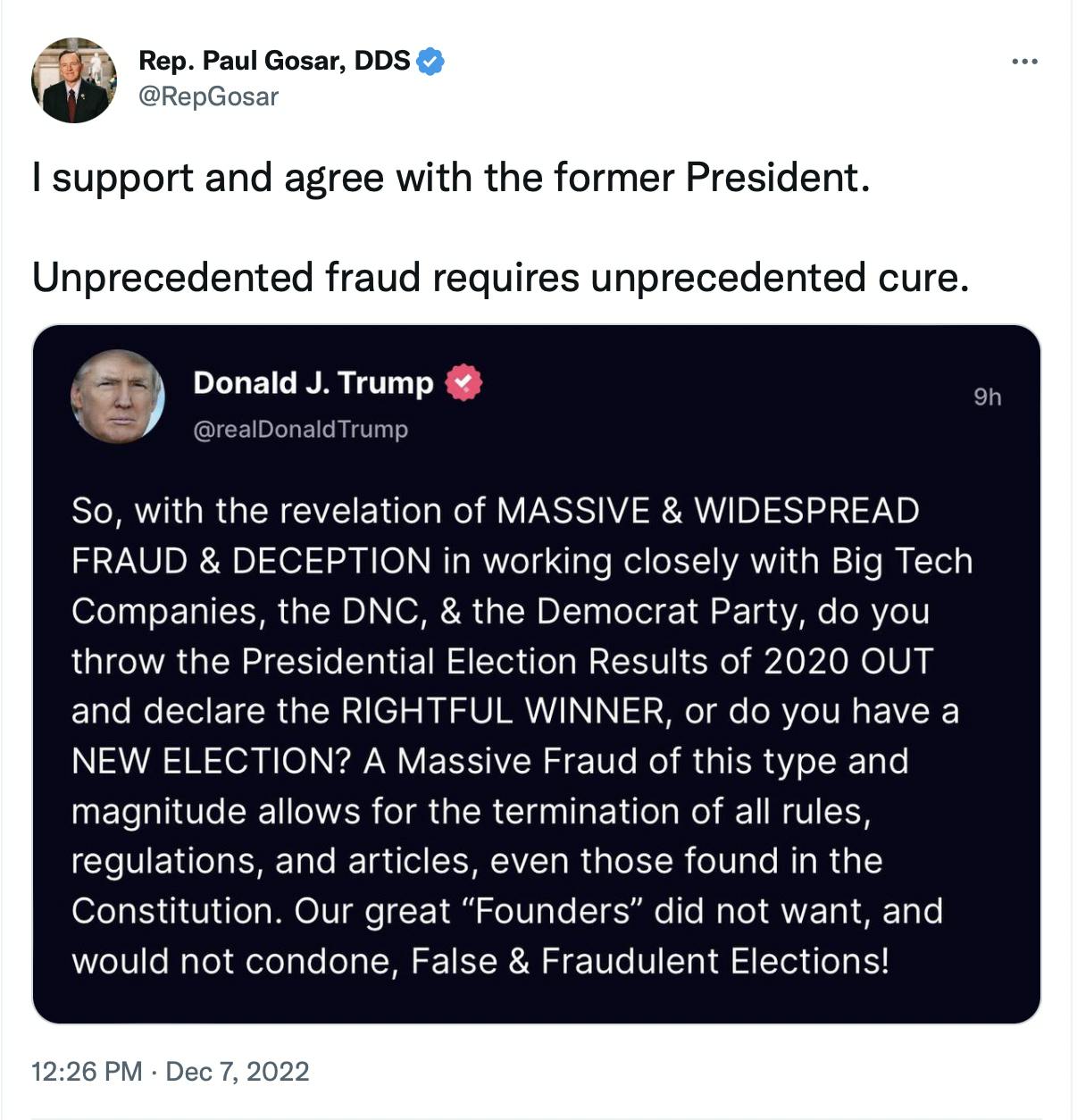House Passes Respect for Marriage Act Protecting Same-Sex Marriage
The House voted 258–169 to protect same-sex and interracial marriage.

The House of Representatives voted 258–169 Thursday to approve a historic bill enshrining the right to marriage equality.
The Respect for Marriage Act will now go to President Joe Biden to be signed into law. The bill, which applies to both same-sex and interracial marriage, would require that two people be considered married so long as their marriage was legal in the state in which it was performed. The act also repeals a 1996 law defining marriage as between a man and a woman, which has remained on the books despite being declared unconstitutional by the Supreme Court in 2015.
Many civil rights activists have warned that after the Supreme Court overturned Roe v. Wade in June, same-sex marriage may be next on the chopping block.
During debate beforehand, Republicans accused Democrats of overreacting, insisting that the 2015 Supreme Court ruling ensuring equal marriage would continue to stand. Two Republican representatives, Vicky Hartzler and Bob Good, went so far as to claim the bill discriminated against religious institutions—despite being backed by most major religious organizations—and threatened heterosexual marriage.
The act had already passed the House over the summer, although 156 voted against it—including a shockingly hypocritical “nay” vote from Representative Glenn Thompson, who attended his son’s same-sex wedding just a week later. Thompson again voted no on Thursday.
Critics of the bill say, though, that it does not go far enough with LGBTQ protections. Part of the amendment says that religious organizations do not have to marry same-sex couples, which would allow groups to continue to be homophobic, and the bill does not require all states to actually issue same-sex marriage licenses.









